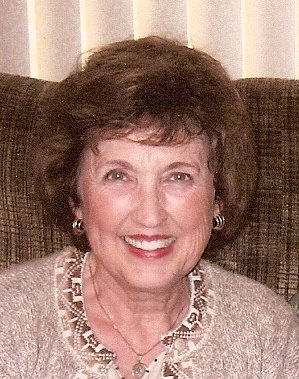You Can't Move from Broken to Beautiful Overnight
Yvonne Ortega is a survivor, but also a thriver! I know her uplifting UPGRADE story about change will  encourage anyone who feels broken by circumstances.
encourage anyone who feels broken by circumstances.
“For years, at least five times a week, I sat at the beach with my journal and cried until my head ached and my eyes were swollen,” Yvonne says. “My mind swirled with questions: Will I ever be strong and stand up for myself? When will I feel free and peaceful? When will I laugh and enjoy life again?”
Ever struggle with those thoughts? I (Dawn) did when my husband and I faced a drastic ministry change—not our choice. I wondered if I’d ever be able to “smile from the heart” and trust people again. God was faithful. But I wish I’d known these helpful tips.
Yvonne continues . . .
You may wonder how I changed. Here are three tips I learned about change.
1. I realized “change requires hard work.”
My work included daily journaling, prayer, Bible study, Bible memory verses, praise and worship, individual counseling and a divorce recovery group.
I claimed several favorite Bible memory verses and reviewed them frequently. One was Philippians 1:6 (NIV):
“Being confident of this, that he who began a good work in you will carry it on to completion until the day of Christ Jesus.”
What hard work will your change require?
2. I accepted the fact that change takes time.
I didn’t accept that fact easily, but I couldn’t rush the healing of a broken heart from divorce anymore than I could rush the healing of a broken arm or a broken leg. The healing time required patience.
The Lord brought James 5:7-8 to mind. That passage says,
“Be patient, then, brothers and sisters, until the Lord’s coming. See how the farmer waits for the land to yield its valuable crop, patiently waiting for the autumn and spring rains. You too, be patient and stand firm, because the Lord’s coming is near.”
Your broken heart may not be from divorce. It may be from the loss of a loved one, a major move in which you left family and friends behind, or a prodigal child. Be gentle and patient with yourself. Trust God to help you.
3. I celebrated each step of progress.
After I finished aggressive chemotherapy and thirty-three rounds of radiation, a friend and I drove to the beach for a few days to celebrate. My retired missionary friends let us use their beach house free of charge.
We walked on the beach in the morning and again at night and made sandcastles. We splurged on a seafood dinner and bought a Dairy Queen Blizzard for dessert. I had dreamed of enjoying a Blizzard after treatment.
When I reached the five-year mark of being cancer-free, several friends and I celebrated at a restaurant. I took a pink tablecloth, pink confetti, and a pink balloon.
What small step of progress will you celebrate this week?
Those old days of crying at the beach until my head ached and my eyes were swollen are a faint memory. Now I have fun at the beach.
On a women’s retreat this month, a friend and I collected shells, chatted and laughed as we walked on the sand. Every time my roommate and I were in the room, we opened the door to hear the sound of the waves. We felt refreshed when we returned home.
I did find happiness, freedom and peace, but not overnight.
I laugh often and enjoy life far more than I ever imagined possible. You can too.
What do you need to change in your life? What will you do this week to start the process?
 Yvonne Ortega is a licensed professional counselor, a bilingual professional speaker, and the author of Moving from Broken to Beautiful: 9 Life Lessons to
Yvonne Ortega is a licensed professional counselor, a bilingual professional speaker, and the author of Moving from Broken to Beautiful: 9 Life Lessons to  Help You Move Forward (paperback, Kindle) and Finding Hope for Your Journey through Breast Cancer (Kindle), both available at amazon.com/books. She not only survived but thrived after a domestic violence marriage, breast cancer and the loss of her only child. With honesty and humor, Yvonne uses personal examples and truths of the Bible to help women move from broken to beautiful. Find out more about Yvonne at her website.
Help You Move Forward (paperback, Kindle) and Finding Hope for Your Journey through Breast Cancer (Kindle), both available at amazon.com/books. She not only survived but thrived after a domestic violence marriage, breast cancer and the loss of her only child. With honesty and humor, Yvonne uses personal examples and truths of the Bible to help women move from broken to beautiful. Find out more about Yvonne at her website.
Graphic adapted, Image courtesy of foto76 at FreeDigitalPhotos.net.
 Post a Comment → Posted on
Post a Comment → Posted on  Thursday, April 30, 2015 at 9:00AM
Thursday, April 30, 2015 at 9:00AM  Brokenness,
Brokenness,  Change,
Change,  Upgrade with Dawn,
Upgrade with Dawn,  Yvonne Ortega Upgrade Your Life
Yvonne Ortega Upgrade Your Life  Attitudes,
Attitudes,  Biblical Thinking
Biblical Thinking 















